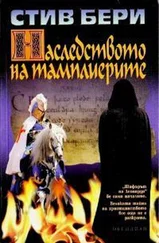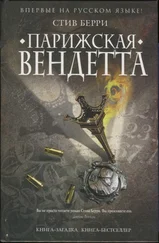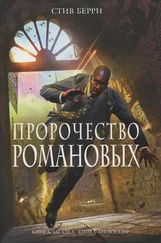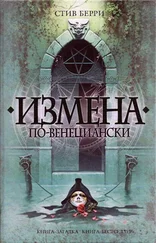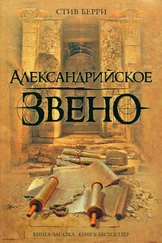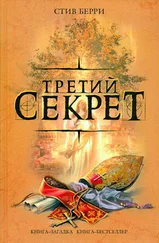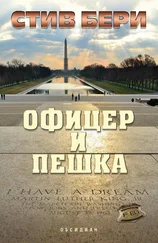Engle saw Vitt move in the darkness, then a muzzle flash as she fired a round upward. Thankfully, he was nowhere near where she’d aimed.
So he returned fire.
Obliterating the glass in the case behind which she lurked.
Cassiopeia knew she would have only an instant thanks to the momentary confusion she’d surely generated in Engle.
And he did not disappoint.
The glass case beside her shattered.
A bit too close for comfort.
So she sprang to her feet and plunged into the darkness that draped the base of the hall’s towering walls. She was about ten meters from the nearest arch that led out into the first-floor gallery. Her eyes probed the darkness above, trying to see where Engle might be. The first gun flash had come from across the hall. If Engle was still there he would have a clear angle for more shots.
Then it occurred to her.
Engle had moved.
She angled her head upward. The wall stones progressively darkened as they rose past the second floor to the coffered ceiling.
He was there.
Right above her.
In the gallery.
Cotton crested the top of the stairs and stared ahead. Glass tinkled to the floor below as another shot was fired. On the way up he’d caught sight of Cassiopeia rolling out from behind the case and moving into the blackness. She was diverting attention. Keeping Engle busy. Allowing him time to get close.
Before him, more niches lined the outer wall of the gallery, each one a black hole. Ahead was equally stark. His eyes were still adjusting, but he was able to catch movement on the opposite side of the hall. He used the darkness surrounding him and crept forward, turning left at one end and traversing the short side toward the remaining long side, where Engle was apparently positioned. He stopped beside one of the supporting arches, peered around the edge, and realized that Engle was now directly above where Cassiopeia had last been seen. While Engle’s attention was on Cassiopeia, he inched forward. For a moment he had a spark of déjà vu to a few years ago and another German castle where he’d been in a similar situation. That day he’d had some help. Not now. He was on his own, and the woman he loved was in trouble.
“Engle,” Cassiopeia called out, her voice echoing. “It’s all over.”
“I don’t see it that way.”
“The election is finished for both candidates. That means you’re finished, too.”
Across the darkened hall, into the far gallery he spied Engle, who stayed in the shadows behind one of the arches, preventing a clear shot.
“You’re not leaving here,” Cassiopeia said.
“On the contrary, Fräulein, it is you who will not be going anywhere.”
Engle came into view as he approached the upper balustrade and swung his gun up, then pointed straight downward to where Cassiopeia waited.
Cotton fired his weapon.
The round found Engle’s chest and sent the German back from the railing. He finished the job and fired again. Engle’s body teetered, then thudded to the floor.
Cassiopeia came into view below. “I was hoping you had a shot.”
He lowered the gun. “Me too.”
“The chancellor is roaming around this castle somewhere,” she said.
“As is Gerhard Schüb.”
“I think we should find them both.”
CHAPTER SEVENTY-SEVEN
Marie absorbed the amazing sight before her. From a macabre underground museum of Nazi memorabilia, she’d entered what appeared to be a funerary chamber. And what had Pohl said? “Do come in. After all, you and I are family and it is past time you paid respects to our mother.” Kurt was staring at her in disbelief—surely she was the last person he’d expected to see. She ignored his presence and continued to absorb the sight of the three tombs.
“The one to your left contains the mortal remains of your mother,” Pohl said. “Eva Anna Paula Braun Hitler Bormann. She birthed me, as well. Though, as you seem to now know, our fathers were different.”
She faced Kurt and asked, “Papa told you all of what you just spoke of?”
“You heard?”
“Every word.”
He hesitated a moment before nodding. “You are the daughter of the Führer. Hitler’s issue. His legacy. There is no question.”
Enough pride came in the statement to make her stomach queasy. She heard again what her father said on his deathbed. “My world died long ago, and I with it. You are all that remains.”
She knew now what he meant.
“Hitler wrote in his will,” Pohl said, “ I die with a happy heart aware that there will spring up the seed of a radiant renaissance of the National Socialist movement. You were the seed of which he spoke.”
The thought made her sick.
“You were ready to attack me for my parentage,” Pohl said. “Will you be equally as stern on yourself? Do the people deserve to know of your mother and father?”
“I don’t know, Theodor, perhaps we should explore that more fully.”
The voice came from behind her.
She turned to see a wizened old man standing in the doorway. His face carried a sad, remorseful mien, though the eyes—black dots in an oily sea—burned with life. She knew instantly who he must be.
Gerhard Schüb.
The old man entered.
She turned back and saw that Pohl was appraising his new guest with a look that combined curiosity and apprehension.
“It seems another corpse has risen from the dead,” Pohl finally said. “You died two years ago.”
“A necessary tactic to avoid your scrutiny. I could tell, then, that you were planning something. So I decided to fade away, where I could observe without your watchful eye.”
“You know me well.”
“Too well, I am afraid.”
She watched the two men, who seemed to be ignoring everyone and everything around them, their focus on each other. The intensity was obvious, things only understood between them, as with she and Kurt.
“What are you doing here?” Pohl asked.
“I came to see you. A visit. Like we had so many times in the past.”
Schüb studied the room’s adornments, ending his perusal at the tombs. “So this is where you brought them. And the purpose?”
“They did not deserve an anonymous grave in Africa. They are my family.”
Schüb stepped to the smaller of the large sarcophagi. Eva Braun’s. “She would be appalled.”
“That is your opinion.”
“Did you know her? Did you ever speak with her? How could you possibly understand what would have pleased her?” The old man pointed. “You know nothing, Theodor.”
Pohl’s arm swept the air back toward the glass-fronted shelves. “I know what these say. Her words. Her thoughts. They are clear. I. Know. Her.”
“No, they are far from her thoughts.”
Pohl seemed not to hear. “She told me everything about her, in her own hand. And about my father.”
“She told you nothing,” Schüb spat out. “She simply told you what she wanted you to know. And I assure you, it was precious little.”
Pohl did not react to the rebuke. Instead, he said, “I remember our talks. You spoke of her with pride. You, too, told me many things about her and him.”
“I, too, told you only what I wanted you to know.”
Pohl stormed across the room toward Schüb. The old man stood his ground as the younger man came close. “I ask you again, what are you doing here?”
“I came to tell you something.”
“Then say it and leave.”
“I have followed you closely through the years. Over the past few days I have learned even more. Quite a web you conceived.” Schüb faced the chancellor. “It was Theodor who sent that information to you under my name. He thought me dead so it seemed a safe tactic. He knew that your morals and values would compel you to investigate. Which is what he wanted. Of course, the idea was for you to discover the money, not his or your parentage. My sister, Ada, changed his plan and led Fräulein Vitt and Herr Malone to Africa and me.” Schüb threw Pohl a calculating look. “I was told you received the news of my death with great joy.”
Читать дальше


